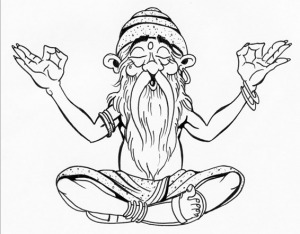Much ado has been made about New York City receiving the Lee Kuan Yew Prize. The idea that a city with an established status in our global cultural imagination needs an award from Singapore seemed appalling to many. Interestingly, the responses from this side of the pond had an admittedly aspirational tone.
In the past, the cultural obsession to emulate the West has always been an issue much discussed and debated. The recent economic recession, violent manifestations of pathological social apathy (London riots), class inequality (Occupy Wall Street movement) and a general lack of worldliness in the West should have put an end to this. However it has not.
Now, what has previously passed for Western ideals have become entangled with global ones, forming a cosmopolitan philosophy, so to speak. In this instance, the mainstream belief is that as a city, Singapore, has to aspire to be like other cities in the West so as to become a world-class city of its own.
The thing is, New York City became the icon it is today not by trying to be like another city, but simply by being itself, allowing its people to meld and clash, to luxuriate in their varying immigrant cultures and counter cultures, creating a sense of spontaneity and freshness of thought.
Singapore has all the necessary hallmarks of an international hub. It has already established itself as far as economy, education, security, technology and transportation are concerned. During the past few years, policy makers have focused on making Singapore a more culturally vibrant city by building the necessary infrastructure and funneling the required funds to arts, entertainment and media industries. They have relaxed certain laws and legislation and created new avenues to increase tourism. We seem to have it all.
We have the brand but not the substance. Culture cannot be copied, it has to be created. For Singapore to possess the cultural and intellectual joie de vivre it seeks, it has to do so on its own terms. Comments questioning our freedom of expression and blaming government restrictions are excuses being recycled from a bygone era.
It seems that the fundamental thing holding us back is ourselves, our fear to own up to our place in society, our diverse yet shared cultures, our immigrant history, our land.
Perhaps this deep rooted inferiority complex in our collective social psyche has to do with the fact that we have always been a small country surrounded by far bigger ones, forcing us to be an overachieving population, constantly striving to prove ourselves by taking on a path of success and cultural recognition already laid out by older and ‘wiser’ nations.
Or maybe it the shape of our terrain itself inhibiting us. The Ancient Greeks talked about people who lived on land completely surrounded by sea lacking the imagination and depth in thought which their counterparts living in mountainous regions possessed. Apparently, the strangest mythologies and the oldest cities sprung from unbroken and wild terrain. Yet these very same Greeks spoke about the island city of Atlantis, that mythological place where men reached their full cultural and intellectual potential.
Perhaps, it is time for us to release all these preconceived notions about what a great city should be and simply aspire to be greater than ourselves.
At the same time, it should be noted – like any other cosmopolitan and culturally established city, New York City has a dark side, a historically rich underbelly of crime and poverty and homelessness. There is always a cost to greatness.
Reena Devi
An edited version of this piece was published in TODAY newspaper and TODAYonline.
